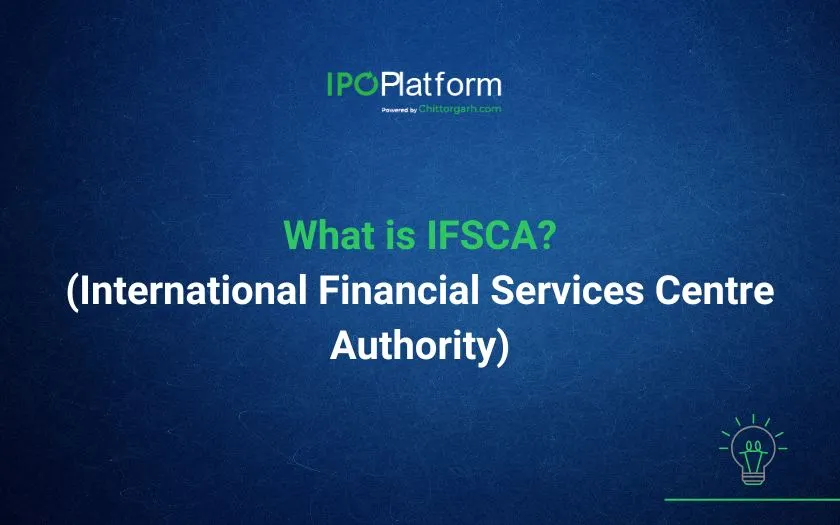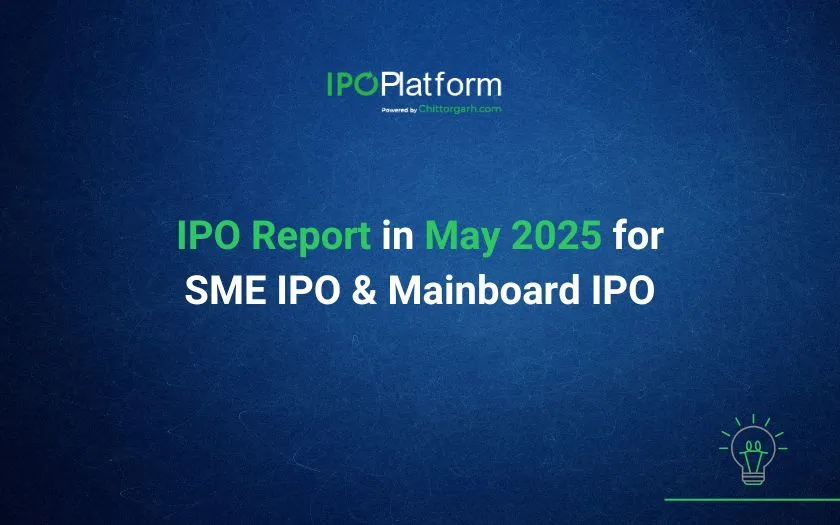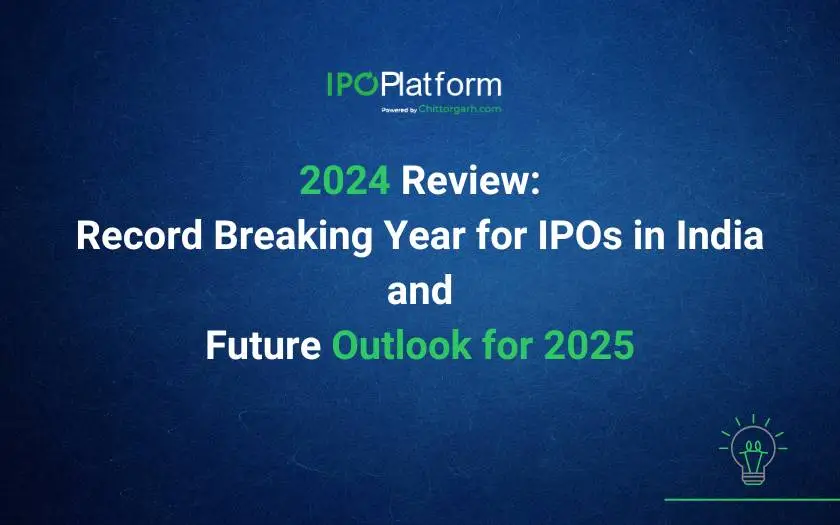What is IFSCA (GIFT City)?

The IFSCA (International Financial Services Centre Authority) is a unified authority for the development and regulation of financial products, financial services and financial institutions in the International Financial Services Centre (IFSC).
Key features of IFSCA
- The Government of India established International Financial Services Centers Authority under the International Financial Services Centers Authority Act 2019 passed by the Union Parliament.
- IFSCA has the statutory mandate to develop and regulate financial institutions, financial services, and financing products within the IFSCs in India.
- The Government of India, with effect from October 2020, granted IFSCA the regulatory powers of four domestic regulators namely Reserve Bank of India (RBI), Securities & Exchange Board of India (SEBI), Insurance Regulatory and Development Authority of India (IRDAI) and Pension Fund Regulatory and Development Authority (PFRDA) under 16 Central Statutes for the IFSCs in India.
Gujarat International Finance-Tec City (GIFT) consists of a Multi-Service Special Economic Zone (SEZ), which has been notified as India's maiden International Financial Services Centre. It aims to promote India as a global financial hub and attract foreign investments.

Capital Market Activities of IFSC includes:
➢ Stock Exchanges
➢ Clearing Corporation
➢ Depository
➢ Broker Dealers
➢ Investment Bankers
➢ Custodians
➢ Depository Participants
➢ Clearing members
➢ Credit Rating Agency
➢ Debenture Trustees
IFSC exchanges are namely NSE IFSC and India INX which operate within the IFSC and offer various financial instruments including stocks, debt securities, and more. IFSCA is the regulator for these IFSC exchanges.
IFSCA Listing regulations as per NEW IFSCA (Listing Regulations, 2024)
The New Listing Regulations have been issued to enhance the listing of equity (primarily by unlisted Indian companies as well as foreign companies), bonds and other permitted financial products on the stock exchanges in the IFSC. The new regulations allow IFSC to strengthen the capital raising abilities and strong uphold in the global markets. By fostering collaboration between investors and companies, they are expected to contribute significantly to the centre’s growth.
Understanding the role of international financing centers as an important platform for raising funds for global business the regulations are designed to make the IFSC a competitive and appealing destination for raising capital through both equity and debt instruments. Although the framework takes a light-touch regulatory approach, it ensures sufficient investor protection remains in place.
Key Listing Process Elements:
Appointment of Lead Manager: Issuers must appoint a lead manager and other intermediaries for the IPO process.
In-principle Approval: Seek in-principle approval from the chosen stock exchange.
Filing and Disclosure:
- File a draft offer document with IFSCA, including a due diligence certificate from the lead manager.
- Offer documents should contain all material disclosures, including risk factors, capital structure, and financial statements.
- Offer documents should also disclose pricing mechanisms (fixed price or book-building).
- Public feedback is sought on the draft offer document for a specified period.
- Revisions based on feedback are submitted to IFSCA.
Minimum Subscription: The IPO must receive minimum subscription of 75% of the issue size.
Dilution: For Indian companies listing on stock exchanges within the International Financial Services Centre (IFSC), the minimum public float requirement is 10% of the post-issue capital. This means that at least 10% of the company's total issued shares must be held by the public (non-promoter shareholders) after the initial public offering (IPO).


Benefits of IFSC
-
Access to Global Capital:
Listing on IFSC exchanges allows companies to tap into a vast pool of international investors, including specialized investors with industry-specific interests, beyond the domestic market.
-
Enhanced Valuation:
The increased investor base and global visibility can lead to better price discovery and potentially higher valuations for the company's shares compared to domestic listings alone.
-
Diversified Funding Sources:
Companies can raise capital in foreign currencies, diversifying their funding options and reducing reliance on domestic markets.
-
Increased Global Visibility and Brand Recognition:
Listing on reputable international exchanges enhances a company's global presence and positions it as a global player, facilitating international expansion.
-
Simplified Listing Process:
The IFSCA has introduced regulations aimed at promoting ease of doing business for issuers, including a streamlined listing process and a business-friendly regulatory environment.
-
Tax Incentives:
The IFSCA framework provides tax benefits and incentives for companies listing and operating within the IFSC, further enhancing its attractiveness as a capital-raising hub.
-
Currency Risk Mitigation:
Transactions on IFSC exchanges are conducted in foreign currency, eliminating currency risk for international investors.
-
Strategic Gateway to Global Markets:
Listing in GIFT IFSC can serve as a gateway for Indian companies to access global opportunities and expand their international presence.
Conclusion
Information from various secondary sources highlights that many firms are in the pipeline to list their securities on IFSCA exchange, including an ed-tech firm and many others.
The IFSC exchange listing route could provide an opportunity for Indian companies looking to go global. It would enable businesses to raise capital in foreign currency, attract international investors, and expand their global footprint.
With investor-friendly regulations, tax advantages, and easier compliance, the IFSC offers a strong alternative to traditional foreign listings. For Indian startups and established companies, it’s not just about accessing global markets—it's about doing it in a way that supports long-term growth and keeps India at the center of innovation.
As India continues to build its reputation as a global financial hub, the IFSC exchange could be the ideal Launchpad for the next generation of Indian success stories.
FAQs
What is the purpose of the IFSC?
An International Financial Services Centre (IFSC) is a special zone in India designed to handle international financial transactions, like those usually done in global hubs such as Singapore, Dubai, or London. The idea is to bring these kinds of high-level financial activities back to Indian soil instead of letting them happen abroad.
India's first IFSC is in GIFT City, Gujarat. It provides a supportive environment with favourable tax rules and relaxed regulations, making it easier and more attractive for global businesses to operate here.
In simple terms, the IFSC helps:
- Indian companies, including startups, to invest money outside the country more easily
- Attract foreign investment into India
- Support global trade, banking, insurance, and financial technology (fintech) startups
- Create jobs and promote innovation in finance.
By connecting with global financial systems, the IFSC makes India a more competitive and important player in the world of international finance, all while boosting the economy and reducing our reliance on foreign financial centres.
Listing of loss-making companies- QIB Route explained
What are the Listing Benefits & Practical Insights for the Companies listing in GIFT IFSC?
- Provides startups and Indian companies access to global investors, alternative capital sources, and potentially better valuation in international markets.
- Shares listed on GIFT IFSC benefit from tax incentives (e.g., exemption from STT, stamp duty, CTT), and firms enjoy extended trading hours and operational flexibility
- Eligible companies must still adhere to all relevant Indian laws, including the Companies Act, SEBI Act, Depositories Act, FEMA, etc., alongside exchange-specific compliance regimes
What are the Eligibility & Ineligibility Criteria for listing on GIFT IFSC?
Eligible Entities
- Unlisted public companies issuing fresh shares or allowing existing shareholders to offer shares.
- Dual Listing on Indian stock exchanges and IFSC, the pricing of equity shares issued by a company listed on the IFSC Stock Exchanges, as well as on the Indian stock exchanges, shall not be less than the price at which such equity shares are issued to domestic investors in a corresponding mode of issuance under applicable laws.
What is the FinTech scheme of IFSCA?
Launched in 2022, the IFSCA FinTech Incentive Scheme is designed to turn GIFT City into a global hub for financial technology (fintech) innovation. The scheme offers financial support (grants) to both Indian and international fintech startups to help them build and scale advanced financial solutions.
Are Banks permitted to operate in an IFSC?
Banks are allowed to operate in an International Financial Services Centre (IFSC), such as the one in GIFT City, Gujarat. Banking is one of the main services offered there. After getting approval from the IFSCA (the authority that regulates IFSCs), both Indian and foreign banks or even Indian branches of foreign banks can set up special branches called IFSC Banking Units (IBUs).
These banks don’t deal in Indian Rupees for regular transactions, but they can offer many international services in foreign currencies, such as:
- Trade finance (helping businesses buy/sell goods across borders),
- Project finance (funding big infrastructure projects),
- External commercial borrowings (ECBs) (foreign loans),
- Foreign currency loans, and
- Treasury operations (managing money, investments, and risks).
Why do banks choose to operate in an IFSC?
- Fewer regulatory hurdles (simpler rules)
- Tax benefits, and
- Access to international clients.
This setup enables global banks to easily enter the Indian market, helps Indian banks expand their global reach, and encourages more international business to flow through India.
Who are Anchor Investors in IPO?







0 Comments